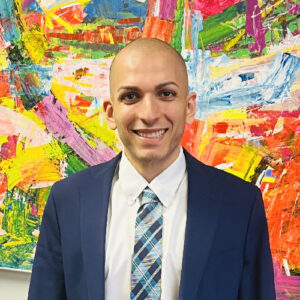Firm Accolades
What Happens When You’re Arrested for Murder in Texas? 
When you are arrested for a serious crime like murder, you will likely be questioned by law enforcement officers. Being arrested is a stressful, intimidating, and emotional experience, and it can make you feel vulnerable. In these moments, police officers may use various tactics to get you to talk. They may try to convince you that cooperating with them will make things easier or that remaining silent will make you appear guilty. It’s important to understand that these are tactics used to elicit confessions or incriminating statements.
Anything you say during questioning can be used against you in court. Even an innocent remark or a seemingly harmless explanation can be twisted and misinterpreted. Law enforcement may focus on small inconsistencies or misstatements and use them to build a case against you. The statements you make during questioning are likely to be recorded and may be played in court during trial. These recordings can be presented as evidence, and they can be incredibly damaging if you inadvertently say something that could be construed as an admission of guilt.

Managing Partner
Partner & Criminal Division Chief

Criminal Trial Division
Criminal Trial Division
Associate Attorney
Of Counsel
Your Right to Remain Silent
Under the U.S. Constitution, you have the right to remain silent when questioned by law enforcement officers. This right is guaranteed by the Fifth Amendment and is one of the most powerful protections available to you. In Texas, as in all states, law enforcement is obligated to inform you of your right to remain silent, typically during the Miranda warning, which is read at the time of your arrest. It’s important to understand that invoking your right to remain silent does not make you look guilty. In fact, it is a smart and necessary move to protect your legal rights. Law enforcement officers are trained to get people to talk, and they may try to convince you that remaining silent will make you look suspicious. However, exercising your right to remain silent until you have an attorney present is the best thing you can do to safeguard yourself during this critical moment. Your lawyer can help you understand when and how to speak, and more importantly, they can prevent you from saying anything that could harm your case.The Role of Your Attorney in Defending a Murder Charge
An attorney is an essential ally in any criminal case, but this is especially true when facing a murder charge. Murder charges are among the most serious allegations one can face, and the consequences of a conviction are dire. In Texas, a murder conviction can lead to long prison sentences, or in extreme cases, the death penalty. Your attorney’s job is to ensure that you receive a fair trial, and that your rights are protected throughout the legal process. This means that your lawyer will work with law enforcement and prosecutors to challenge any evidence they believe is inadmissible, investigate any potential defenses, and provide counsel when you are faced with difficult decisions. The role of your attorney is also to ensure that you are not coerced or manipulated into making a statement that could later be used against you.Why Statements Can Be Harmful
There are many reasons why giving a statement to law enforcement before speaking with an attorney can be harmful. One of the main reasons is that you may not fully understand the consequences of what you are saying. Even if you feel you are innocent, law enforcement may take your words out of context, misinterpret them, or use them against you in ways that you did not anticipate. It’s important to remember that the police are not your friends in these situations. While they are obligated to follow the law, they are also trained to elicit confessions and gather evidence against suspects. You may feel compelled to explain your actions or tell your side of the story, but without the guidance of an attorney, you could inadvertently say something that damages your case.Related Videos
Judge or Jury Trial?
Choosing a Criminal Defense Attorney




























